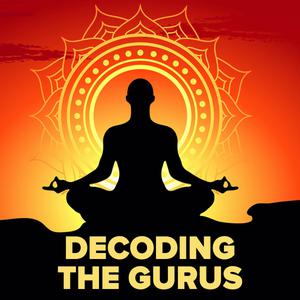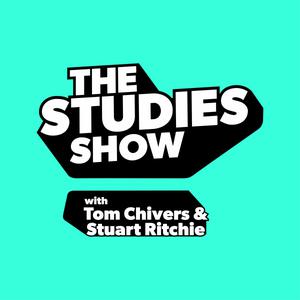
Nullius in Verba
Smriti Mehta and Daniël Lakens
Between the arrogance of dogmatism, and the despair of skepticism
- 1 hour 4 minutesEpisode 50: Quinquagesimus
In this special two-part celebration, we answer questions submitted by our listeners. Thanks to James Steele, Peder Isager, and Simen Leithe Tajet for the questions featured in this episode. And thank you for joining us for 50 episodes!
Shownotes
- Roger Scruton Quote
- Borsboom, D., Mellenbergh, G. J., & van Heerden, J. (2003). The theoretical status of latent variables. Psychological Review, 110(2), 203–219. https://doi.org/10.1037/0033-295X.110.2.203
- Danermark, B., Ekström, M., & Karlsson, J. C. (2019). Explaining Society: Critical Realism in the Social Sciences (2nd ed.). Routledge. https://doi.org/10.4324/9781351017831
- Maxwell, J. A., & Mittapalli, K. (2010). Realism as a Stance for Mixed Methods Research. In A. Tashakkori & C. Teddlie, SAGE Handbook of Mixed Methods in Social & Behavioral Research (pp. 145–168). SAGE Publications, Inc. https://doi.org/10.4135/9781506335193.n6
- Vincent, S., & O’Mahoney, J. (2017). Critical realism and qualitative research: An introductory overview (G. Grandy, C. Cassell, & A. L. Cunliffe, Eds.; pp. 201–216). SAGE Publications Ltd. https://doi.org/10.4135/9781526430212
- Danermark, B. (2019). Applied interdisciplinary research: A critical realist perspective. Journal of Critical Realism, 18(4), 368–382. https://doi.org/10.1080/14767430.2019.1644983
10 January 2025, 5:00 pm - 1 hour 8 minutesEpisode 49: Valor Scientiae Psychologicae
You can listen to the podcast More of a Comment Than a Question here: https://moreofacomment.buzzsprout.com/
Our joint episode is a response to the episode ‘Final Final Final Comments’: https://moreofacomment.buzzsprout.com/1207223/episodes/16055645-final-final-final-comments
13 December 2024, 5:00 pm - 11 minutes 44 secondsPrologus 49: We Have to Break Up (R. B. Cialdini)
In preparation for our next episode, a joint recording with our friends from More of a Comment than a Question, we read a paper by Robert Cialdini about the value of social psychology for the general public.
- Cialdini, R. B. (2009). We Have to Break Up. Perspectives on Psychological Science, 4(1), 5–6. https://doi.org/10.1111/j.1745-6924.2009.01091.x
6 December 2024, 5:00 pm - 59 minutes 17 secondsEpisode 48: Defectum
How I Fail. Blog by Veronika Cheplygina https://veronikach.com/category/how-i-fail/
Arkin, R. (2011). Most Underappreciated: 50 Prominent Social Psychologists Describe Their Most Unloved Work. Oxford University Press.
Kerr, N. L. (1998). HARKing: Hypothesizing After the Results are Known. Personality and Social Psychology Review, 2(3), 196–217. https://doi.org/10.1207/s15327957pspr0203_4
Sharpe, D. (2013). Why the resistance to statistical innovations? Bridging the communication gap. Psychological Methods, 18(4), 572–582. https://doi.org/10.1037/a0034177
Anti-Creativity Letters episode: https://nulliusinverba.podbean.com/e/prologus-23-the-anticreativity-letters-r-e-nisbett
Rouder, J. N., Haaf, J. M., & Snyder, H. K. (2019). Minimizing Mistakes in Psychological Science. Advances in Methods and Practices in Psychological Science, 2(1), 3–11. https://doi.org/10.1177/2515245918801915
Firestein, S. (2015). Failure: Why Science Is So Successful (First Edition). Oxford University Press.
Sternberg, R. J. (Ed.). (2019). My Biggest Research Mistake: Adventures and Misadventures in Psychological Research (1st edition). SAGE Publications, Inc.29 November 2024, 5:00 pm - 1 hour 18 minutesEpisode 47: Inductio et Deductio
In this episode, we delve into induction and deduction and talk further about issues related to generalizability.
Shownotes
- Popper, K. The Logic of Scientific Discovery. (1953). Hutchinson & Co. (Originally published in 1935)
- Yarkoni, T. (2022). The generalizability crisis. Behavioral and Brain Sciences, 45, e1.
- Mook, D. G. (1983). In defense of external invalidity. American psychologist, 38(4), 379-387.
- Salmon, W. C. (1981). Rational Prediction. The British Journal for the Philosophy of Science, 32(2), 115–125. https://doi.org/10.1093/bjps/32.2.115
- Reichenbach, H. (1938) [2006], Experience and Prediction: An Analysis of the Foundations and the Structure of Knowledge, Chicago: University of Chicago Press.
- Senn, S. (2007). Statistical issues in drug development (2nd ed). John Wiley & Sons.
- Ernst, M. D. (2004). Permutation Methods: A Basis for Exact Inference. Statistical Science, 19(4), 676–685.
- Bacon, F. (1620). Instauratio magna [Novum organum]. London: John Bill.
- Urbach, P. (1982). Francis Bacon as a Precursor to Popper. The British Journal for the Philosophy of Science, 33(2), 113–132.
15 November 2024, 5:00 pm - 1 hour 3 minutesEpisode 46: Invaliditas Externa
In this episode, we discuss the paper "In defense of external invalidity" by Douglas Mook.
Shownotes
- Mook, D. G. (1983). In defense of external invalidity. American Psychologist, 38(4), 379–387.
- Mook, D. G. (1989). The myth of external validity. Everyday cognition in adulthood and late life, 25-43.
- The case of Phineas Gage was written up: Harlow, J. M. (1848). Passage of an iron rod through the head. The Boston Medical and Surgical Journal (1828-1851), 39(20)
1 November 2024, 5:00 pm - 52 minutes 55 secondsPrologus 46: In Defense of External Invalidity (D. G. Mook)
A reading of the paper In Defense of External Invalidty by Douglas G. Mook, which will be discussed in the next episode.
- Mook, D. G. (1983). In defense of external invalidity. American Psychologist, 38(4), 379–387. https://doi.org/10.1037/0003-066X.38.4.379
25 October 2024, 4:00 pm - 51 minutes 15 secondsEpisode 45: Apprenticiatus
In this episode, we discuss the role of apprenticeship in training scientists and researchers. What’s the difference between traditional apprenticeship and cognitive apprenticeship? Does graduate training live up to its promise as an apprenticeship model? What can we do to improve the modeling of skills that are to be taught during graduate training?
Shownotes
- Collins, A., Brown, J. S., & Holum, A. (1991). Cognitive apprenticeship: Making thinking visible. American educator, 15(3), 6-11.
- Gabrys, B. J., & Beltechi, A. (2012). Cognitive apprenticeship: The making of a scientist. In Reshaping doctoral education (pp. 144-155). Routledge.
- Casadevall, A., & Fang, F. C. (2016). Rigorous science: a how-to guide. MBio, 7(6), 10-1128.
- Alvesson, M., Gabriel, Y., & Paulsen, R. (2017). Return to meaning: A social science with something to say. Oxford University Press.
- Polanyi, M. (1958). Personal Knowledge: Towards a Post-Critical Philosophy (M. J. Nye, Ed.). University of Chicago Press.
18 October 2024, 4:00 pm - 1 hour 9 secondsEpisode 44: Reprehensio Scientiae Aperta
This is a live episode, recorded in Växjö, Sweden (Linnaeus university) on September 24, 2024, at the 5th meeting of the Open Science Community Sweden and the Swedish Reproducibility Network. Thanks to André Kalmendal at Mono (https://monovaxjo.se) for recording the episode.
4 October 2024, 4:00 pm - 1 hour 45 secondsEpisode 43: Historia Casus Methodi Scientifica
In this episode, we discuss the paper "A case history in scientific method" by B. F. Skinner
Shownotes
- Skinner, B. F. (1956). A case history in scientific method. American psychologist, 11(5), 221.
- Richter, C. P. (1953). Free research versus design research. Science, 118(3056), 91–93.
- https://archive.org/details/WaldenTwoChapter01
20 September 2024, 4:00 pm - 1 hour 3 minutesPrologus 43: A Case Study in Scientific Method (Skinner)
In preparation for the next episode, in which we discuss this paper, here is a reading of:
Skinner, B. F. (1956). A case history in scientific method. American Psychologist, 11(5), 221-233.13 September 2024, 4:00 pm - More Episodes? Get the App
Your feedback is valuable to us. Should you encounter any bugs, glitches, lack of functionality or other problems, please email us on [email protected] or join Moon.FM Telegram Group where you can talk directly to the dev team who are happy to answer any queries.
 COMPLEXITY
COMPLEXITY
 Decoding the Gurus
Decoding the Gurus
 The Studies Show
The Studies Show
 The Wright Show
The Wright Show
 Very Bad Wizards
Very Bad Wizards
 Conversations with Tyler
Conversations with Tyler